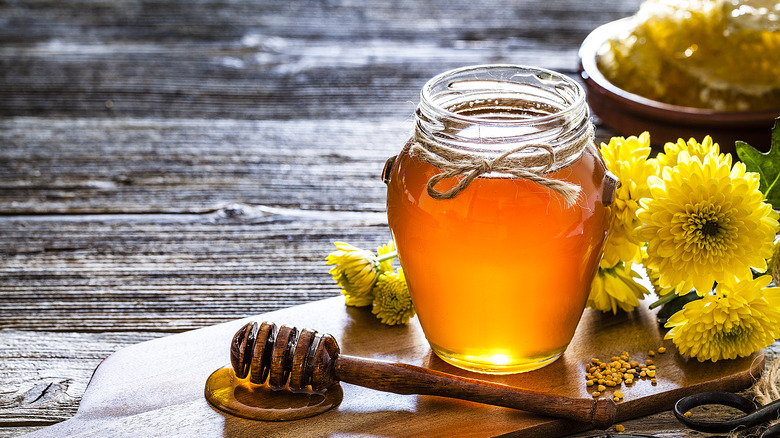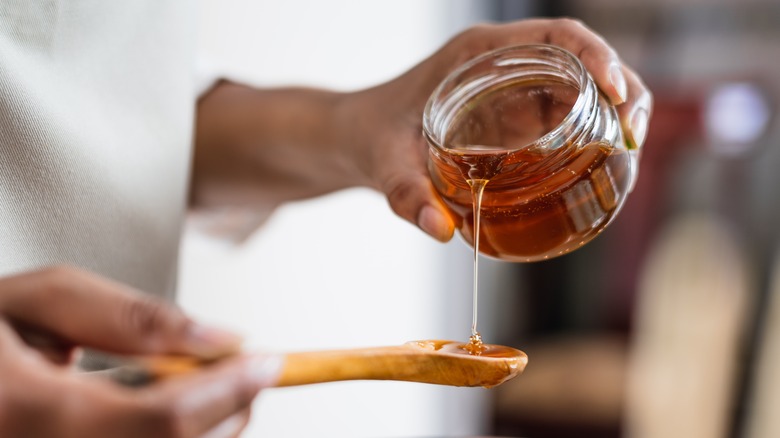What You Should Know Before Heating Honey
Honey is nature's liquid gold. For one, it never expires. In fact, a 5,000-year-old honey was discovered that's still fresh and delicious. It's also a great source of nutrients and antioxidants. Or at least it is when it's raw. Most honey on the shelves is pasteurized (despite naturally having a shelf life longer than most civilizations) and the high heat from pasteurization destroys most of the nutrients. Does that mean we should never heat our honey? Not necessarily.
Bees keep their hives at a consistent temperature of 90 to 95 degrees Fahrenheit, so if you have raw honey at home feel free to heat it up to 95 degrees without worrying about damaging its nutritional content. Above 95 degrees, though, and you start degrading much of what makes honey so great. At a basic level, high heat is going to break down the enzymes that give the honey its flavor and its medicinal benefits. If honey reaches 98 degrees Fahrenheit, hundreds of components will have already broken down. At this stage, honey loses its antimicrobial properties. When it reaches 104 degrees Fahrenheit, the honey's invertase is destroyed, which is arguably the most important enzyme in honey. In the human body, it aids in the digestion of complex sugars and has antioxidant properties. Any hotter and you will start a process known as caramelization, which turns all of honey's beneficial complex sugars into not-so-beneficial basic sugars.
Benefits of raw honey
If you want to keep the nutritional benefits of your raw honey, simply don't heat it above 95 degrees Fahrenheit. Heating it to that level can help if your honey has crystallized so don't be scared of heat, just be careful not to ruin the good stuff. And there's a lot of good stuff.
Raw honey is rich in antioxidants that help keep your cells from aging and are known to be anti-inflammatory. It's also a good source of amino acids, calcium, magnesium, and many more nutrients. There are components in honey that help with memory, aid in digestion, and are potentially effective against cancer. Talk about a tasty powerhouse!
Almost none of these benefits are retained after the honey has been heated above 95 degrees Fahrenheit, which means the cheaper pasteurized brands you find in grocery stores aren't exactly the healthiest versions. To get the good stuff, you need raw honey. Consider buying local for your best chance at acquiring a premium product. And again, there's no need to be afraid of heating your honey a little, but if you're spending the extra cash on quality raw honey maybe don't cook with it. Use the pasteurized versions for that.

